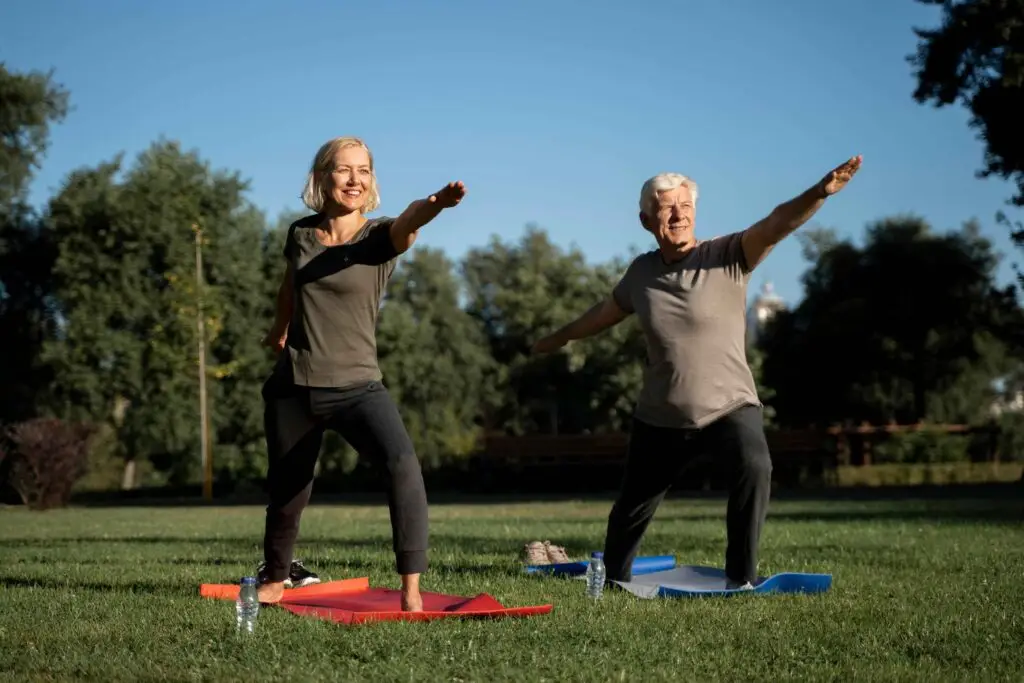Aging isn’t just about physical changes — it’s also a journey that deeply involves your mental and emotional well-being. How you feel, think, and connect with others can greatly affect your overall health and happiness as you move through your 60s, 70s, and beyond.
The good news? Mental and emotional wellness can be strengthened at any age, helping you enjoy a fuller, more independent life.
Why Mental Health Matters More Than Ever in Later Years
Our mental and emotional health influences everything—from motivation and decision-making to our immune response and risk of chronic illness. Yet, as people age, they often face challenges like retirement, loss of loved ones, physical health changes, or shrinking social circles that impact their mental well-being.
Depression and anxiety are more common than many realize among older adults, but they’re not a normal part of aging. Early recognition and management can make a huge difference.
Maintaining good mental health helps you:
- Stay socially connected
- Manage stress and adapt to life changes
- Keep your memory sharp
- Feel more motivated and hopeful
- Reduce risks of physical illness
Common Mental and Emotional Challenges for Seniors
While everyone’s experience is unique, there are some common challenges to be aware of:
- Depression and anxiety: Feelings of sadness, hopelessness, or excessive worry that last for weeks. These are medical conditions that can be treated with counseling, medication, or lifestyle changes.
- Cognitive decline: Mild forgetfulness is normal, but sudden memory loss or confusion should be evaluated by a doctor. Early intervention is key to managing dementia or Alzheimer’s disease.
- Loneliness and social isolation: Shrinking social networks due to moving, retirement, or health problems can lead to feelings of loneliness, which negatively affect mental and physical health.
- Stress and grief: Coping with life transitions like retirement, loss of friends or spouse, or changing roles in the family can create emotional stress.
Recognizing these issues and seeking support is important for maintaining well-being and independence.
Practical Steps to Support Your Mental and Emotional Wellness
Here are evidence-backed strategies that seniors can use to nurture their mental and emotional health every day:
1. Stay Socially Connected and Engaged
Social interaction is one of the most powerful tools to prevent loneliness and depression. Regular contact with family, friends, or community groups provides emotional support and a sense of belonging.
Ideas to stay connected:
- Schedule regular phone or video calls with loved ones
- Join local clubs or senior centers that offer activities and classes
- Volunteer for causes you care about — helping others boosts your mood and sense of purpose
- Attend faith-based or cultural community events
Even simple daily interactions with neighbors or shopkeepers can brighten your day.
2. Keep Your Mind Active and Curious
Your brain thrives on new experiences and challenges. Lifelong learning builds “cognitive reserve” — a protective buffer that helps delay memory decline.
Try these activities to keep your mind sharp:
- Reading books, magazines, or newspapers regularly
- Doing puzzles like crosswords, Sudoku, or brain teasers
- Learning a new skill or hobby, such as painting, cooking, or playing a musical instrument
- Taking adult education or online courses on subjects that interest you
Studies show that mentally stimulating activities can help reduce the risk of Alzheimer’s disease and other dementias.
3. Practice Mindfulness and Relaxation Techniques
Chronic stress negatively affects your brain and body, increasing risks for depression, anxiety, and cardiovascular disease.
Mindfulness practices, meditation, and relaxation techniques can:
- Lower stress hormone levels
- Improve mood and sleep quality
- Enhance focus and emotional regulation
Even just 5 to 10 minutes a day of deep breathing or guided meditation can make a big difference.
Gentle yoga or Tai Chi combines mindfulness with physical movement, providing benefits for both mind and body.
4. Prioritize Good Sleep Hygiene
Sleep patterns often change with age, but quality sleep is critical for emotional balance, memory consolidation, and overall health.
To improve sleep:
- Maintain a consistent sleep schedule, even on weekends
- Create a calm, dark, and cool bedroom environment
- Avoid caffeine, alcohol, and heavy meals close to bedtime
- Limit screen time in the evening; the blue light disrupts melatonin production
- Consider a warm bath or reading before bed to relax
If you suffer from persistent insomnia or sleep apnea, consult your healthcare provider.
5. Eat a Brain-Healthy Diet
Nutrition is closely linked to mental health. Diets rich in antioxidants, healthy fats, vitamins, and minerals support brain function and mood.
Focus on:
- Fatty fish like salmon or mackerel, rich in omega-3 fatty acids
- Colorful fruits and vegetables packed with antioxidants
- Whole grains and nuts for sustained energy
- Foods high in vitamins B6, B12, and folate, which help reduce homocysteine levels linked to cognitive decline
Avoid excessive sugar and processed foods, which may increase inflammation and negatively impact mood.
For more about nutrition and seniors, see our detailed guide on Nutrition Essentials for Seniors.
6. Seek Professional Help When Needed
There’s no shame in asking for help if you’re struggling emotionally or cognitively.
Options include:
- Counseling or therapy, including telehealth options for convenience
- Support groups for grief, chronic illness, or caregiving
- Medication prescribed by your healthcare provider when appropriate
- Cognitive assessments and memory clinics for early diagnosis of dementia
Mental health is just as important as physical health — treating conditions early improves outcomes and quality of life.
Overcoming Barriers to Mental and Emotional Wellness
Many seniors face obstacles to maintaining good mental health, such as mobility limitations, lack of transportation, or stigma around mental illness.
Here are some tips to overcome these barriers:
- Use technology to connect virtually if getting out is difficult (smartphones, tablets, or computers)
- Ask family or community organizations for transportation help to social events or doctor visits
- Normalize conversations about mental health within families and peer groups
- Take small steps daily to build habits that support wellness, such as short walks or journaling
Remember, small consistent actions can lead to big improvements.
The Role of Physical Activity in Mental Wellness
Physical and mental health go hand in hand. Exercise releases endorphins that improve mood, reduces stress hormones, and supports better sleep.
Even moderate activities like walking, gardening, or stretching can boost brain function and emotional resilience.
For a guide to safe and effective exercises for seniors, check out our article on Staying Active and Moving Well.
Frequently Asked Questions About Mental and Emotional Wellness for Seniors
Q: Is it normal to feel sad or anxious after 60?
A: Occasional sadness or anxiety is normal, but persistent feelings lasting weeks may signal depression or anxiety disorders, which are treatable.
Q: How can I support a friend or family member struggling emotionally?
A: Listen without judgment, encourage professional help, and offer to accompany them to appointments or activities.
Q: Can mental exercises really prevent dementia?
A: While there’s no guaranteed prevention, mental stimulation combined with physical exercise and healthy living lowers risk and supports brain health.
Q: What if I’m not tech-savvy but want to stay connected?
A: Many community centers offer beginner technology classes, and family members often enjoy helping seniors learn video calling or social media basics.
Conclusion
Mental and emotional wellness are foundational to living well after 60. By nurturing your social connections, engaging your mind, managing stress, and seeking help when needed, you can maintain your independence and enjoy a rich, fulfilling life.
For a full roadmap to aging well—including nutrition, physical health, and preventive care—explore our pillar page: The Ultimate Guide to Healthy Aging After 60.





